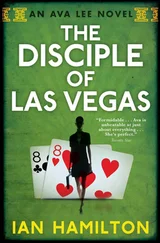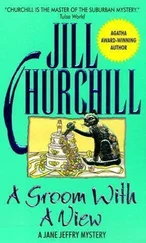Winston Churchill - Ian Hamilton's March
Здесь есть возможность читать онлайн «Winston Churchill - Ian Hamilton's March» весь текст электронной книги совершенно бесплатно (целиком полную версию без сокращений). В некоторых случаях можно слушать аудио, скачать через торрент в формате fb2 и присутствует краткое содержание. Год выпуска: 2018, Издательство: epubBooks Classics, Жанр: История, Прочая документальная литература, на английском языке. Описание произведения, (предисловие) а так же отзывы посетителей доступны на портале библиотеки ЛибКат.
- Название:Ian Hamilton's March
- Автор:
- Издательство:epubBooks Classics
- Жанр:
- Год:2018
- ISBN:нет данных
- Рейтинг книги:4 / 5. Голосов: 1
-
Избранное:Добавить в избранное
- Отзывы:
-
Ваша оценка:
- 80
- 1
- 2
- 3
- 4
- 5
Ian Hamilton's March: краткое содержание, описание и аннотация
Предлагаем к чтению аннотацию, описание, краткое содержание или предисловие (зависит от того, что написал сам автор книги «Ian Hamilton's March»). Если вы не нашли необходимую информацию о книге — напишите в комментариях, мы постараемся отыскать её.
London to Ladysmith
Ian Hamilton's March — читать онлайн бесплатно полную книгу (весь текст) целиком
Ниже представлен текст книги, разбитый по страницам. Система сохранения места последней прочитанной страницы, позволяет с удобством читать онлайн бесплатно книгу «Ian Hamilton's March», без необходимости каждый раз заново искать на чём Вы остановились. Поставьте закладку, и сможете в любой момент перейти на страницу, на которой закончили чтение.
Интервал:
Закладка:
' February 25*th.*—We were all sure that Clough had not cut the wires at all last night. He had received a slight shock and then left it, so it was arranged that Cullen should try. However, the position of the sentry again prevented any attempt.
' February 26*th.*—Best, of the Inniskilling Fusiliers, arrived to–day from the Tugela. He said that all were well down there, though the fighting had been very severe, and that the troops were beyond Pieters. Cronje had no food and must surrender shortly.
'This evening the lights went out without any mistake. Opperman was greatly alarmed, and the electrician could not find out what was up. They all believed a football must have hit the wire outside and put the light out. Probably Clough had partially severed the wires, and the football had completed the damage. Now, however, the wire being broken before it was quite dark, the advantage of surprise would be lost. It was, moreover, a bright night, and we noticed that the light in the streets shone on the wall where we had meant to climb over it. The sentries were doubled, so we finally gave up the plan and tried to think of another. We are told that they will remove us to a new place on the 1st of March, and, perhaps, this will give us a better chance.
'When I went into my room at about 9.30 I found that Le Mesurier, Haldane, and Brockie were having a discussion. As we were to move in two days to the new prison they argued "why not go to earth now." The authorities would think they had escaped under cover of the light going out and would, if anything, hasten the removal of the prisoners, leaving these three under the floor to depart in peace when opportunity offered.
' February 27*th.*—This morning Opperman came into our room as usual to count the number of prisoners in bed, and on seeing three beds empty he fairly staggered with astonishment. I was looking at him with one eye and chuckled to myself at his dismay. He went and asked Brett if he knew anything about it. Brett asked innocently, "About what?" Then I pretended to wake up and ask Opperman what the hell he meant by disturbing us at this hour. He left the room in a fury, but presently returned with Gunning and later with Du Toit, the Chief of the Police, who examined everything à la Sherlock Holmes, and expressed, with a smile, his confidence in the recapture of the flown birds. After breakfast the whole house was cleared and searched. The rooms, the cupboards, the roof—everywhere except under the floor. Then they brought in a dark lantern, and I really thought they had discovered the fugitives at last, but Sherlock Holmes never thought of the floor; his reasoning did not carry him there. He found Haldane's saw made out of a table knife, and connecting this with the hole in the roof of the gymnasium, and the wires cut, he was sure they had gone away in the darkness. The rest, such is their mutual trust of one another in this country, were quite sure somebody had been bribed. The theories of the other officers in the prison are diverting. The discussions as to how the escaped had got out and where they had gone were full of imagination, but quite off the mark. In the afternoon Opperman and Sherlock Holmes came in with a hat and said the prisoners had been seen going over the hills towards Mafeking and had dropped the hat in question. By nightfall they had been tracked to Koodoosburg, about thirty miles out; and, indeed, the remains of their midday meal had been found. O wise detectives! This evening the Dogman went into Cullingworth's house in a great state of excitement and lit a candle at the verandah—a sign of good news, and on Majuba day too!
' February 28*th.*—We received the good news which the Dogman's excitement last night portended. Cronje has surrendered. This was received through the British Consul at Delagoa Bay. Buller has also driven back the Boers, and Botha wired: "No use; Burghers here won't face British." In the afternoon we received the following wire: "Cronje's surrender unconditional. Boers retreating on the Biggarsburg," and in the evening we heard that the British were entering Ladysmith.
'Three more officers replaced the three escaped in my room. We did not let them know about those underground, but I managed to send food, news, and water down as usual, also some hot cocoa at night.
' March 1*st.*—Ladysmith is relieved. Joubert wires: "On Lancers coming out of Ladysmith my mounted men retired leaving waggons and stores behind them." This afternoon the Cullingworths signalled over: "No more news, furthest telegraph station Elandslaagte." Kruger has gone to the front to exhort his burghers with texts. He was preceded by a telegram which was sent to all laagers. It is too long and too profane for me to copy out. Nothing but texts and psalms, showing that they are bound to win "though the enemy compass them about," as the Almighty is their own exclusive and peculiar property. The "Volksstem" says: "There seems to be some foundation for the rumour that Cronje has surrendered, but the report that Ladysmith has been relieved is quite untrue, our burghers are still fighting bravely south of that town. Should, however, Ladysmith be relieved, the war will only enter upon a new phase. We will then have to defend our borders against the greedy grasp of an unholy race. Now will the British see what fighting with the Boers really is. Now will the war begin in earnest."
'(Sherlock Holmes & Co. are completely off the track and all is well below.)
' March 2*nd.*—There are no signs of our moving into our new prison. This is very disconcerting as our friends cannot stay below much longer without getting ill. The Zarps' tents have been moved into the road. Opperman says because the yard was damp, but I fancy they are afraid of an attack on the Zarps. With the dumbbells in the gymnasium it might be possible to overpower them. The day was wet and dreary; I wrote letters, Mr. Hofmeyr prayed for the escaped. I have had to divulge the secret to No. 12 room, owing to one of them unfortunately seeing the trap–door open. They were very nice about it, and will do nothing to compromise the chances of success.'
' March 6*th. —Our signals this morning informed us that the President had wired to Lord Salisbury, "Is it not time bloodshed ceased? Will send peace proposals." These people have got some nerve. First they declare war against an Empire, and then they expect that when they have had enough they can demand a cessation of hostilities. There are no signs of moving.
' March 7*th.*—The Ides of March, but I don't expect Kruger will be murdered in the forum of Pretoria. Those below are still all right, though their condition is not enviable.
' March 8*th.*—The following telegrams were received to–day by our signaller–in–chief Burrows: (1) Fighting with De Wet; (2) Occupation of Bloemfontein on the 6th. I busied myself in drawing a picture of Kruger going to the front to exhort his burghers, on the wall my room. There seems no chance of moving. Opperman says they have not even put down the floor in our new abode. Haldane wants to try to make them move. He thought that if Grimshaw vanished too it might alarm the authorities, and make them anxious to move us to a more secure place, but I feel sure—and Grimshaw agrees with me—this would only lead to the discovery of everything.
' March 11*th.*—I drew another large picture on my wall, a sequel to the first. It represents Kruger just escaping from Lord Roberts, who with drawn sword appears to be running after him at a good pace. My picture No. 1 is entitled "President Kruger goes to front to exhort his burghers;" No. 2 "But returns on urgent business."
'As chances of a move seem so uncertain and they are all determined below not to give in, it has been decided to try to get out by making a shallow tunnel, roofed in with cupboard shelves, into the hospital. Haldane is making arrangements with No. 12 room, who, it appears, are following the same plan.
Читать дальшеИнтервал:
Закладка:
Похожие книги на «Ian Hamilton's March»
Представляем Вашему вниманию похожие книги на «Ian Hamilton's March» списком для выбора. Мы отобрали схожую по названию и смыслу литературу в надежде предоставить читателям больше вариантов отыскать новые, интересные, ещё непрочитанные произведения.
Обсуждение, отзывы о книге «Ian Hamilton's March» и просто собственные мнения читателей. Оставьте ваши комментарии, напишите, что Вы думаете о произведении, его смысле или главных героях. Укажите что конкретно понравилось, а что нет, и почему Вы так считаете.











